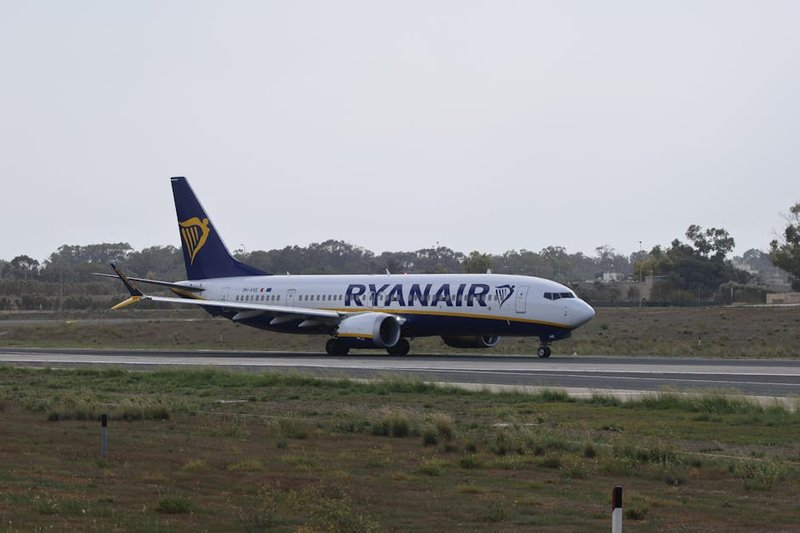Well folks, buckle up for another turbulent chapter in the Boeing saga! This morning, I woke up to news that would make even the most seasoned market watchers spill their coffee. Boeing – yes, the aerospace titan that’s been navigating more stormy weather than a test pilot in hurricane season – is now reportedly seeking to withdraw its guilty plea agreement related to those devastating 737 MAX crashes that claimed 346 lives.
Let me tell you, in my two decades covering corporate America, this maneuver ranks among the boldest legal pivots I’ve witnessed. It’s like watching a corporate chess master make a desperate gambit when the kingside is already compromised.
Boeing – The Strategic Retreat
According to sources familiar with the matter (and believe me, I’ve been burning up the phone lines verifying this), Boeing is actively courting more lenient treatment from the Department of Justice under the Trump administration. The timing here is fascinating – and potentially calculated.
The aerospace giant had previously agreed to plead guilty to criminal fraud charges stemming from those tragic crashes in Indonesia and Ethiopia. That agreement squarely placed blame on Boeing for misleading the FAA before the catastrophic failures that forever changed hundreds of families.

But here’s where the financial intrigue deepens. U.S. District Judge Reed O’Connor rejected the initial plea agreement last December, citing concerns about the government’s diversity, equity, and inclusion policies in the selection process for Boeing’s independent compliance monitor. That judicial speedbump created this opening for Boeing’s legal team.
Boeing – Market Implications: The Billion-Dollar Question
Now, let’s talk about what this means for your portfolio, because that’s why you’re really here, isn’t it?
Boeing’s stock (NYSE: BA) has been performing like a plane in perpetual turbulence – moments of lift followed by stomach-churning drops. This latest legal maneuver adds another layer of uncertainty that markets absolutely despise.
Short-term, we might see a modest rally as traders interpret this as Boeing potentially escaping the most severe penalties. The company’s shares gained modestly on the news, suggesting Wall Street sees this as a potential positive development in Boeing’s ongoing regulatory saga.
However, I’d caution against popping champagne just yet. The long-term reputational damage and potential for regulatory backlash remain substantial risk factors.
“Boeing got one of the most lenient deferred prosecution agreements in American history,” said Paul Cassell, representing some families of MAX crash victims. “The idea that after they breached that agreement, they get another opportunity to avoid acknowledging what it’s done seems to me to be wishful thinking.”
Cassell’s point resonates beyond the courtroom. Boeing’s strategy here risks further alienating consumers, airline partners, and regulatory bodies worldwide – a risky proposition for a company that lives and dies by safety certification.
The Broader Context: A Pattern of Problems
Let’s not forget that this legal wrangling comes after years of cascading crises for Boeing. After the initial 737 MAX disasters in 2018 and 2019, the aircraft was grounded worldwide for nearly two years – a regulatory action that cost the company billions.
Just when Boeing thought it had navigated past the worst turbulence, this January brought fresh disaster when a door plug blew out of an Alaska Airlines 737 MAX 9 midflight. The incident triggered renewed FAA scrutiny, production limitations, and a management shake-up that included replacing Ed Clark, the leader of the 737 MAX program.

The timing of this guilty plea withdrawal attempt suggests Boeing may be seeking to leverage the transition to a new presidential administration, hoping for a regulatory reset that could ease the company’s legal burdens.
Strategic Calculus: The Boeing Gambit
From a strategic standpoint, Boeing appears to be calculating that potential benefits of withdrawing the guilty plea outweigh the risks. If successful, the company might avoid the most severe penalties and restrictions that would accompany a criminal conviction.
However, this approach carries significant hazards:
- Reputational damage: Further alienating the families of victims and undermining public trust in Boeing’s commitment to accountability
- Regulatory backlash: The FAA and international aviation authorities might respond with even tighter oversight
- Investor confidence: Creating new uncertainty about Boeing’s legal liabilities and future financial obligations
The court filing indicates that Boeing and the DOJ will continue negotiations, with an April 11 deadline to notify the court about their plans. This gives market participants just weeks to position themselves for the potential fallout.
What Smart Money Is Watching
For investors weighing their Boeing positions, three key factors deserve close attention:
1. Production capacity: Boeing’s ability to deliver aircraft remains constrained by FAA oversight. Any sign that regulators might further restrict production in response to this legal maneuvering would be a significant negative.
2. International certification: While much attention focuses on the U.S. regulatory environment, Boeing needs global certification for its aircraft. International aviation authorities may respond differently to Boeing’s legal strategy.
3. Airline customer confidence: The ultimate customers – airlines – must feel confident putting passengers on Boeing aircraft. Watch for any signs that major carriers are hedging their bets by diversifying their fleets away from Boeing.
The Bottom Line
Boeing’s attempt to withdraw its guilty plea represents a high-stakes gamble that could reshape the company’s trajectory for years to come. While potentially offering short-term relief from criminal penalties, it creates new uncertainties that prudent investors should approach with caution.
As one of my veteran analyst friends quipped this morning, “Boeing seems determined to test whether the market has infinite patience.” Based on the company’s stock performance over the past five years – down approximately 40% while the broader market has surged – that patience appears to be wearing thin.
For Boeing to truly regain altitude, it needs more than legal maneuvering. It requires a fundamental recommitment to the engineering excellence and safety culture that built its reputation in the first place. Until investors see concrete evidence of that transformation, Boeing remains a turbulent ride that only the most risk-tolerant portfolios should consider.
I’ll be watching this story closely as it develops, particularly the market’s reaction to the April 11 court update. As always in these situations, the smart money pays attention not to what corporate leaders say, but what they actually do. Boeing’s actions in the coming months will speak volumes about its true priorities.



